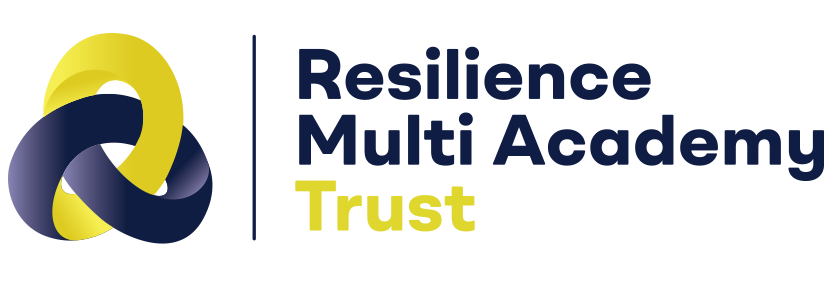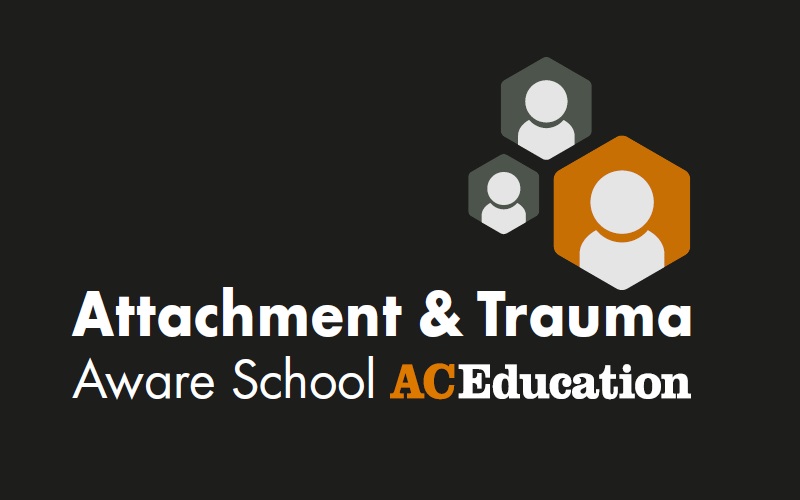SEND
|
School Name |
Southway |
|
Chief Executive |
Saira Luffman |
|
Senior leader responsible for SEND |
Carl Miller |
|
SENDCos |
Michelle Callaghan Balazs Franko |
|
Trust Board member with responsibility for SEND |
Jan Bennett |
|
Contact details |
Southway |
|
|
|
|
Telephone |
0113 484 3030 |
|
Age range |
11 - 16 years |
At the Resilience MAT, we recognise the need to provide an inclusive, supportive and positive learning environment. The skill, enthusiasm and supportive attitude of the class teacher is the key to effective learning of all students, in particular those with SEND who need additional, targeted teacher input to meet their individual needs; improve their confidence and self-esteem; and enable them to achieve and maximise their full potential. High quality teaching, differentiated for individual pupils is the first step in responding to pupils who have SEND. Additional intervention and support cannot compensate for a lack of inclusive ‘quality first’ teaching. Our Trust emphasises ethical school practice underpinned by ‘Every Child Matters’ thereby sustaining a welcoming, effective and inclusive school culture.
The Rodillian Multi Academy Trust
How do we identify the pupils with additional needs?
Southway is a Wave 3 provision that has a holistic approach and which supports students from secondary schools throughout Yorkshire who have struggled to engage in their mainstream setting. All of our students are on the SEND register, by virtue of their placement here. Students' primary SEND is Social, Emotional and Mental Health (SEMH); we have a clear approach to responding to this area of SEND and also to identify any other areas of need.
When students arrive, our priority is to get to know every one of them as well as possible. This enables us to:
- tailor teaching and learning approaches to individual need;
- raise standards and maximise progress;
- to identify and remove any barriers that may be preventing success in learning;
- help all our learners realise their full potential.
The process of getting to know students well is many-faceted but includes some of the following elements:
- Information provided by the young person and their family during initial meetings
- Information from mainstream schools including previous assessment data and reports from external professionals.
- Analysis of academic data, where available, and progress to identify learners making less than expected progress given their age and individual circumstances.
- On-entry assessments, as appropriate.
- Diagnostic assessments that have been carried out by external professionals, including the Educational Psychologist, SENIT and SaLT.
- Feedback from staff that work with students on induction.
- Student Planning Meetings.
Where an area of need is identified, a personalised support/intervention programme can be put in place, led by the allocated SENDCo.
How do we make sure all children reach their potential?
- All teaching groups at Southway have a high staff to student ratio.
- SEND provision is made for students with learning difficulties resulting from a range of needs, including: Communication and interaction, Cognition and learning, Social, emotional and mental health difficulties and Sensory and/or physical needs.
- All students have access to Inclusive Quality First Teaching (QFT).
- Teaching and support staff have access to detailed individual SEND information to inform their Teaching & Learning. This includes generic information and strategies for a broad range of areas of need; individual learner profiles with shared teaching strategies that are effective and person-centred information.
- A flexible and personalised curriculum is used as part of an extended timetable to offer further academic or SEMH support.
- Where necessary, some learners have access to in-class support from a support member of staff, to help apply self-regulation strategies, which in-turn can prevent disengagement.
- The progress of students is tracked by leaders and teaching staff as part of Southway’s assessment cycle to ensure early intervention can be put in place.
- All SEND information and interventions are recorded on Edukey.
- Professional dialogue relating to every child in school ensures any difficulties are identified early and suitable provision put in place.
- Student Planning meetings, including all staff, for each student take place at least once per year and more frequently when necessary. These meetings enable staff to provide insight into their experiences of working with individual students, so that good practice can be shared.
- Identified learners are assessed for Access Arrangements for additional exam support including extra time, a scribe or further adjustments.
- A pastoral structure that brings together Key Stage Leaders (SLT), Multi Agency Team key workers, and SENDCos to ensure the progress, attendance and behaviour of all learners is closely monitored and supported.
- Each student is allocated a key adult (from the Multi-Agency Team), who will oversee their placement and liaise with parents and any professionals involved with the child and family.
- A rewards system provides a structured process that includes the use of sanctions and rewards at all levels, in class and around school. This enables a more consistent approach which supports all learners.
- Pupils are grouped according to their academic and SEMH needs for English, Maths and Science.
- Annual reviews for those students who have an Education, Health and Care Plan (EHCP) allow for clear objectives to be established and the need for any areas of targeted SEND support or reasonable adjustments to be made.
- Student views are very important. Students are invited to review days and Annual Reviews.
- Where appropriate, Southway will engage with external agencies to ensure the delivery of effective special educational needs provision.
- Southway encourages independent learners. Additional resources (including staffing) may be put in place if absolutely necessary to ensure students with special educational needs are fully included in all aspects of school life, including the curriculum, extracurricular programme and school trips.
- The teaching and learning of SEND students is monitored by subject leads as well as SENDCOs and senior staff.
How are parents/carers involved with Southway?
- When working with parents of students with special educational needs, Southway will give support, advice and reinforcement as well as share information and agree targets in order to enable progress.
- Each student is allocated a SENDCo on entry. The SENDCo attends the initial contract meeting and maintains strong communication between Southway and parents/carers of SEND learners with regular telephone updates and meetings where appropriate.
- In addition, each student is also allocated to a Multi-Agency Team key worker, who will provide a first point-of-contact for families for the duration of the placement.
- Review Days are conducted once a term, and comprise meetings between parent/carer, student, Southway, a representative from the mainstream school and any relevant external agencies. The allocated SENDCo is available at these to provide further support.
- These review days are accompanied by a progress report, which provides updates on the academic achievement and well-being of the child.
- Parents' views are important to us. As part of Review Days, parents complete a questionnaire.
- Southway will work in partnership with parents to ensure every student is well-supported. At all stages of the special needs process, the school will keep parents fully informed and involved and parents are encouraged to make a full and active contribution to their child’s education.
- Parents are actively included in the Annual Review process. This information is then used to update the EHC Plans where they exist.
How accessible is the school setting?
Southway is fully accessible with:
- Dedicated accessible parking bays and toilet facilities.
- Our grounds are inclusive and all areas of the grounds are easily accessible by all of our students.
- The corridors and dividing doorways are wide.
- A fully equipped medical room.
To view our accessibility, SEND and managing medicines policies, please see our policies page.
|
Specific Learning Difficulties |
The academy has a full understanding of SpLD’s. Staff adopt SpLD friendly strategies in the classroom to enable all learners to access the curriculum. In addition, where needed, intervention-based programmes can take place to embed foundation knowledge. 1:1 sessions with a SENDCo or subject-specific staff are used where necessary. Where needed in discussion with a student's mainstream school, external referrals for additional support, observation and assessment can be made to inform recommendations for internal strategies. |
|
Moderate Learning Difficulties |
The quality of teaching and learning is monitored by subject and senior leaders and the SENDCo to ensure that it meets individual needs. Referrals to outside professionals for assessment and interventions- including advice on internal support programmes and suitable resources. |
|
Social, Emotional and Mental Health (SEMH) |
All students are allocated a MAT worker / key worker on entry. This ensures strong links with school and home as well as pastoral support for students. The consistent use of Southway’s rewards system provides a clear, structured process that includes sanctions and rewards at all levels - in class and around school. The Class Chart points that pupils are given work towards rewards that include off-site activities. Referrals to MindMate practitioner as appropriate. |
|
Speech, Language and Communication Needs (SLCN) |
Referrals to outside professionals including specialist Speech & Language Therapists for assessment and interventions, including advice on internal support programmes and suitable resources. |
|
Autistic Spectrum Disorder (ASD) |
Referrals to outside professionals e.g. STARS for one-to-one learner support, parental support, advice on internal support programmes and suitable resources. |
|
Hearing Impairment (HI) |
Support from the HI Team to offer advice on specialist equipment, strategies and support. |
|
Visual Impairment (VI) |
Support from the VI Team to offer advice on strategies and support. Reading pens where they are effective. |
|
Physical Disability (PD) |
Accessibility plans and individual risk assessments outline details for movement around the building. |
|
Medical Needs (MN) |
Health & Care Plans and Risk Assessment where applicable. |
How does Southway support a child's overall well-being?
- Each student has a MAT worker.
- Each student has a designated SENDCo.
- Trained safeguarding leads.
- Safeguarding training is undertaken regularly by all staff.
- Trained child protection officers in school.
- Referrals to outside professionals including Educational Psychologist, School Nurse etc.
- SEMH mentoring for identified pupils.
- Leadership Team presence in and around the Academy at all times
- Pastoral meetings to monitor and identify any individuals that need additional support.
|
How do we support: |
|
|
Literacy |
Numeracy |
|
Assessment data is tracked and gaps in knowledge are the focus of all lessons. Rapid Plus literacy programme, to develop fluency and comprehension. Specialist English small group Intervention for some students. Use of 1:1 time for extra literacy interventions. Referrals to outside professionals. |
Assessment data is tracked and gaps in knowledge are the focus of all lessons. Numeracy interventions will be used as a visual resource to support students. Referrals to outside professionals. 1:1 programmes for identified students.
|
|
What specialist services and expertise are available or accessed by the school? (As required) |
|
|
Educational Psychologist SENIT CAMHS MindMate Children's Social Work Services Speech and Language Therapist Occupational Therapist Targeted Youth Support |
Physiotherapist School Nurse Visually Impaired Team Hearing Impaired Team West Yorkshire Police Early Help Support Forward Leeds Schools Immunisation Team |
How will we include children in activities outside the classroom including school trips?
- Extra staff are deployed for trips to meet the stringent requirements of our risk assessments and pupil to adult ratios.
- One-to-one support for those that need this.
- Parents/carers consulted prior to trips for advice and guidance.
- We provide students with step-by-step learning so that they acquire the relevant skills associated with a safe school visit and are able to participate.
How do we support transition to Southway?
- Students and parents/carers are encouraged to visit Southway when a referral has been made.
- A contract meeting takes place between parents/carers, students, mainstream schools and any relevant external agencies.
- Students complete at least three days on a Twilight timetable to enable them to complete on-entry assessments and to meet and start to form relationships with staff.
- Each student has a designated MAT worker and SENDCo.
What types of support are available?
- Wave One – Inclusive Quality First Teaching for all
- Wave Two -Additional interventions to enable children to work at age related expectations or above including Twilight sessions.
- Wave Three – Additional Highly Personalised SEND Support and Interventions.
How do we allocate resources?
- The Trust Lead for SEND works across the Resilience MAT, linking with SENDCos, who lead the day-to-day management of the SEND department.
- Intervention Support Assistants students can be used as appropriate to provide personalised support to students with an EHC Plan.
- Support and resources are allocated proportionate to the 4 areas of need for those on the SEND Register. Further resources are allocated across the whole school and this is readjusted annually in line with our analysis of the current cohort to ensure the schools’ universal Wave 2 offer is relevant to need. Additional resources are allocated for those with medical needs and to support learners who require access arrangements.
To access the Leeds Local Offer go to: https://leedslocaloffer.org.uk/






